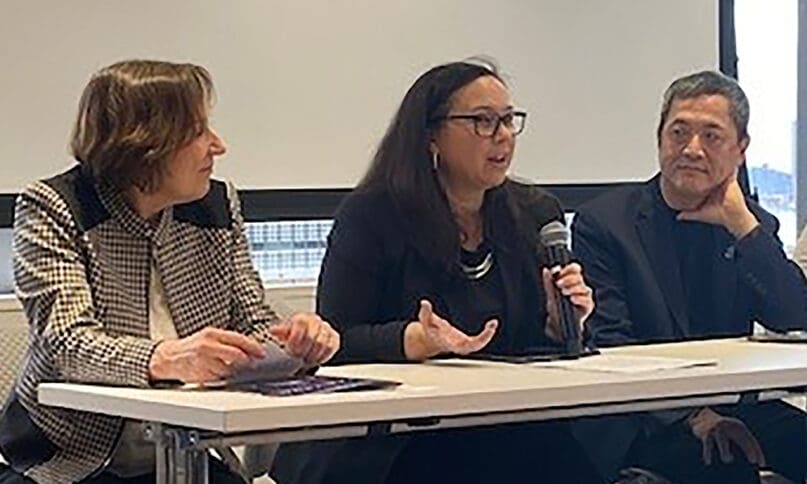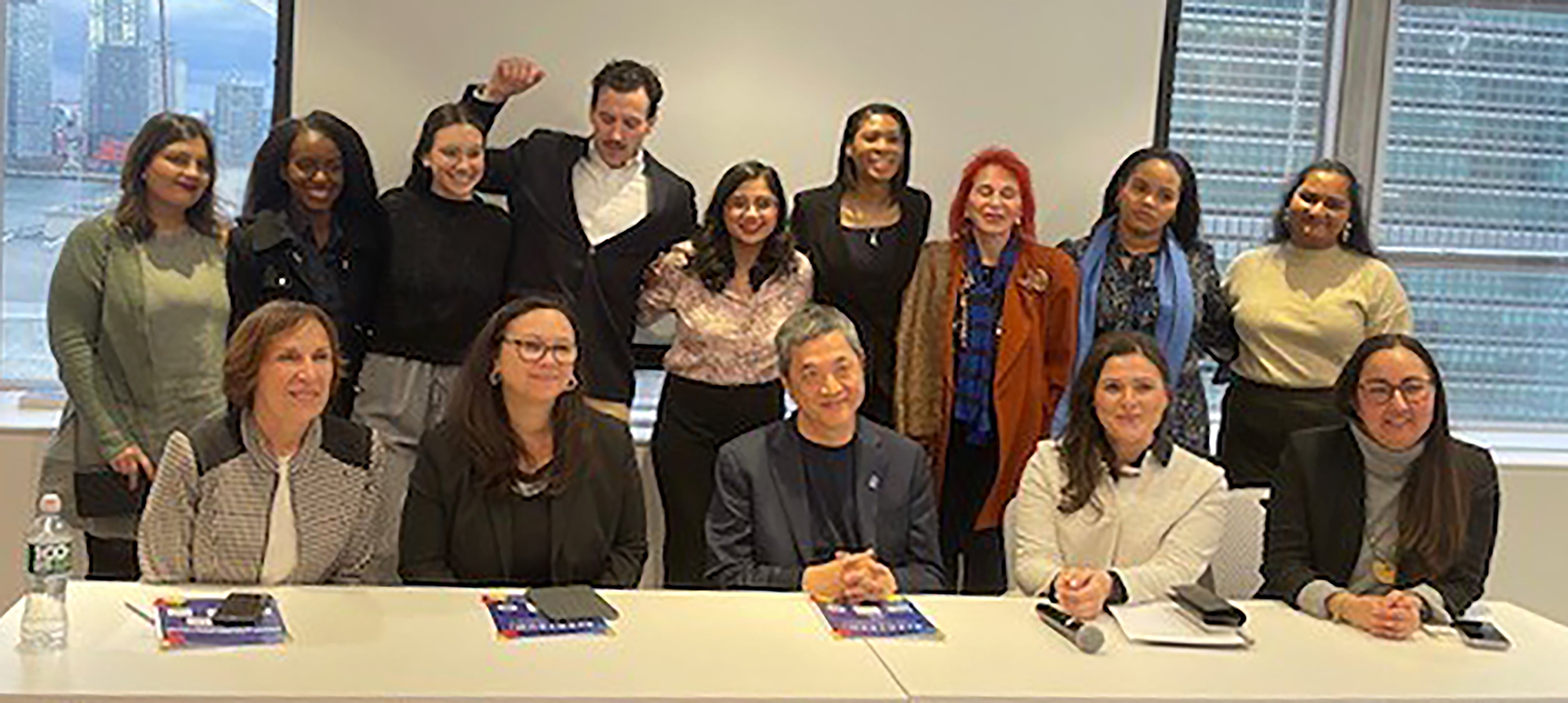Dr. Mary Donahue, AHRC New York City’s Vice President of Behavior Support Services, was one of several experts in the field invited to speak at the United Nations on Saturday, March 8 as part of Spectrum: A Discussion Concerning Autism Spectrum Disorder. The discussion was co-presented by Columbia University Teachers College, The NGO Committee on the Status of Women, and the International Association of Applied Psychology.
Mary was joined on the panel by:
- Amy Davies Lackey, Director of Education, The Manhattan Childrens Center
- Victoria Grinman, Founder, Growing Kind Minds
- Aron Janssen, Vice Chair of Child & Adolescent Psychiatry, Pritzker Ann & Robert H. Lurie Children’s Hospital of Chicago
- Leyla Sharafi, Senior Gender Advisor, United Nations Population Fund and a parent of a child with autism
- Andy Shih, Chief Science Officer, Autism Speaks

“I focused primarily on the limited funding and services available for adults and transitioning teenagers who have high support needs and behavioral challenges,” Mary said. “The field is lacking in every service because of these funding challenges—day services, residential services, and clinical services.”
Mary said there have been particular challenges in obtaining mental health services for people on the spectrum.
“It is hard to find providers to serve people with both autism and mental health challenges because it requires a more involved assessment and carries more risk for the providers,” Mary explained. “It can be difficult to treat people with limited language skills. Medicaid reimbursement is atrocious, and it simply takes more time than many providers can afford.”
Ultimately, families bear the brunt of these challenges. “It can be such a hard system to navigate, including care management, which is supposed to be that helpful resource,” Mary added. “Families can wait more than six months for an evaluation and just give up. We need to return to family support that isn’t complicated and is easy to access.”
About Autism Spectrum Disorder
Autism Spectrum Disorder (ASD) occurs across all racial, gender, religious, and socioeconomic measures. It is estimated that one in 36 children is diagnosed with ASD. Boys are four-to-five times as likely to be diagnosed than girls, though many girls may be undiagnosed/misdiagnosed. Research indicates that genetics play the largest role in determining whether a child will have autism; there is no credible evidence that childhood vaccines cause ASD.
Manifestations of ASD include spoken language difficulties, social difficulties, anxiety, depression, elopement, and cognitive impairment. Despite the challenges that ASD can present to autistic people and their families, support is available in many forms, such as provider agencies like AHRC New York City, specialized education for students with autism, employment support for adults, and support groups for parents and siblings.
During Autism Awareness Month and beyond, we admire the courage and strength of all people with autism and their families.
